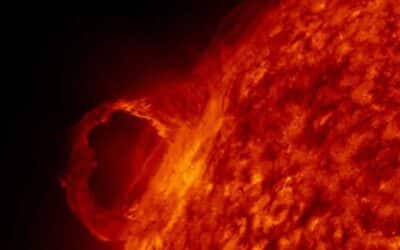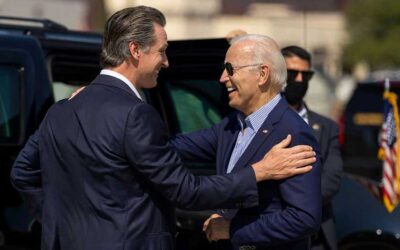In Paul Krugman’s latest column, he tries to turn the dismal economy into a partisan issue in another remarkable display of his intellectual dishonesty and hypocrisy. He begins by referring to Bill Clinton’s speech at the Democratic National Convention:
Perhaps the best of those zingers was his sarcastic summary of the Republican case for denying President Obama re-election: “We left him a total mess. He hasn’t cleaned it up fast enough. So fire him and put us back in.”
Does Krugman agree that the economic mess was the Republicans’ fault and that the Obama administration has worked to reverse the damage the Bush administration caused? He continues:
Great line. But is the mess really getting cleaned up? The answer, I would argue, is yes.
So, yes, he agrees with and reinforces Clinton’s characterization of the situation. Then he has this brilliant line:
The next four years are likely to be much better than the last four years — unless misguided policies create another mess.
Krugman is a master at saying things without really saying anything. This is like saying, “Tomorrow it is likely to rain—unless the clouds blow over and the sun comes out.” He proceeds to list what Obama has “accomplished”:
First, and most pressing, there was a crisis in the financial system, with many of the crucial channels of credit frozen; we were, in effect, suffering the 21st-century version of the bank runs that brought on the Great Depression. Second, the economy was taking a major hit from the collapse of a gigantic housing bubble. Third, consumer spending was being held down by high levels of household debt, much of which had been run up during the Bush-era bubble.
Notice how he calls it a “Bush-era bubble”, further reinforcing the view that the Republicans created the mess and the Democrats are fixing it. This is a completely fictional narrative. In short, the economy was a mess because the housing bubble had burst, precipitating the financial crisis. So, what was the cause of the housing bubble, the catalyst for this whole mess Obama inherited? The cause was primarily the Federal Reserve and its inflationary policy of keeping interest rates artificially low (that is, lower than they would be under free market conditions), as well as the bipartisan government policy of encouraging homeownership and the implicit promise of taxpayer bailouts that incentivized excessive risk. After the collapse of the dot-com bubble, Paul Krugman advocated a Fed policy of low-interest rates specifically in order to create a housing bubble (see my book Ron Paul vs. Paul Krugman: Austrian vs. Keynesian economics in the financial crisis). Which is, of course, precisely what the Fed did.
As for what the government did about it under Obama, Krugman continues:
The first of these problems was resolved quite quickly, thanks both to lots of emergency lending by the Federal Reserve and, yes, the much maligned bank bailouts.
So Obama “solved” the problem by doing more of what helped cause it in the first place. He kept Ben Bernanke on at the Fed, which inflated even more to keep interest rates artificially low, and he continued the policy of bailing out the banks that began under the Bush administration.
Krugman also cites the bailout of the auto industry and the American Recovery and Reinvestment Act of 2009, saying they “made the slump a lot less awful than it might have been”. This is a constant refrain from Krugman when he tries to prove himself. Thus, when the Fed acted to lower interest rates after the dot-com bubble burst he argued that it helped to make the slump a lot less awful than it otherwise would have been. Which was true, it did prevent a more severe recession. The problem is that while he sees the bust as the disease which must be cured by creating another artificial boom, the reality is that the artificial boom is the disease which must be cured by the bust. By preventing the market correction and liquidation of malinvestment, the government may have prevented a more severe recession, but at the expense of prolonging the agony and setting the stage for the next crisis.
And what about Obama’s “stimulus”? He actually has a case there for his partisan angle; the Republicans did oppose it. But who was right? Krugman thinks that government spending is a part of the solution. But where does government get the money from? It taxes Americans, borrows it at interest, or runs the printing presses. The first doesn’t create growth. Taking money away from people in the private sector so it can be wastefully spent by bureaucrats in the public sector is just inefficiently shifting wealth around (as opposed to the efficiency of the market). It doesn’t create wealth. The second just runs up the currently $1 trillion deficit and runs up the national debt, currently at $16 trillion (not counting the unfunded liabilities that put it well over $100 trillion), robbing wealth from future generations. And the third doesn’t create wealth, either, but robs savers and spenders alike through inflation (if you save, your money depreciates, and if you spend, goods cost more due to the price inflation that occurs as a consequence of monetary inflation).
Thanks to the above policies, Krugman predicts:
And here’s the good news: The forces that have been holding the economy back seem likely to fade away in the years ahead.
Except that, just as the economic “growth” during the bubble years was illusory because it wasn’t sustainable because it wasn’t based on investment of capital but excess credit, so is the current “recovery” based on an inflationary monetary policy intended, among other things, to help prop up the housing market and the stock market, as well as to punish savings and incentivize continued borrowing and spending—all the same things that caused the problem in the first place. This is not a road to recovery. It is a road to another financial crisis. And the next one will be even worse than the last. The real financial crisis will come when the bond bubble bursts. When the world loses confidence in the dollar and stops buying Treasuries, interest rates will rise beyond the Fed’s ability to keep them low by inflating. Then there will either be a severe depression or, worse, runaway inflation.


